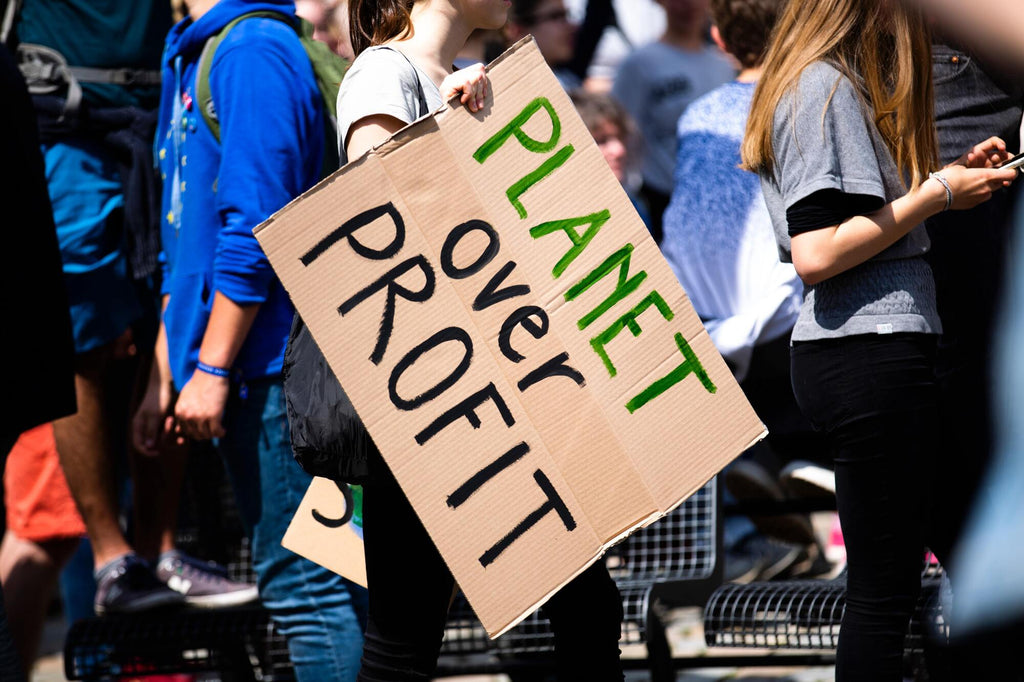Don’t Look Up and Climate Change

How the Netflix Hit reshapes the way we talk about the Climate Crisis
Slammed by critics, loved by reviewers. With 263 million hours streamed over the holiday period and more than 360 million hours over its first 28 days, ‘Don’t Look Up’ by Adam McKay has become Netflix’s second most popular debut ever.
The premise is simple: a group of scientists desperately attempts to get the people in charge to act on an apocalyptic threat for the planet. Sounds familiar?
Not without reason. Director and writer Adam McKay recently confirmed that the film, in which a team of NASA researchers discover a giant comet with the power to wipe out the planet if not destroyed within six months, is indeed a metaphor for the climate crisis. His story was inspired by David Wallace-Wells’ book The Uninhabitable Earth (Penguin Books) and the 2018 Intergovernmental Panel on Climate Change report.

Jennifer Laurence and Leonardo DiCaprio in Don't Look Up. Source: Netflix.
In the film, the scientists warn, argue, scream, and beg their way through talk shows, government task forces and corporate meetings, but greed and disbelief ultimately succeed - and planet earth is destroyed. Critics were quick to dismiss the film as “too blunt” or “heavy-handed”. The film lacks subtlety, but that’s precisely what it was set out to do: scientists have warned governments and media for years, yet they weren’t listened to. For climate journalists like Fiona Harvey, who spent 17 years reporting on the climate crisis, the film was a cathartic experience: ‘As the film’s scientists first struggled to clothe their data in sober, measured terms, then broke into swearing, arm-waving shrieks about provable imminent apocalypse, I nodded along. Yes, that’s what it feels like, and no, no one listens, not until it is too late.’
The scale of the climate breakdown is huge. Despite this, we’re still not talking enough about the urgency of preventing the crisis from going from bad to worse.
The truth is: we could have dealt with the climate crisis. We’ve had many opportunities. We knew about it in 1965 - they had the science for greenhouse gases warming the Earth back in late 19th century. In the 70s, the oil companies started to work to solve it and then they decided it was cheaper not to. So, really, the story about the climate, in a lot of ways, is – we’re the animals on this planet that are creating it, we’re the animals that have the abilities to solve this problem and we’re not. And to me, that's the most striking thing about the climate catastrophe.
- Adam McKay, via Outrage & Optimism
We’re Done With Subtleties
The comet in Don’t Look Up affects all humans equally - live or die. The climate crisis, however, is far more unjust, affecting poorer countries exponentially more than Europe, the United States or northern Asia. Instead of creating another dystopian parable of the effects of climate change, such as The Day After Tomorrow (2004) and Interstellar (2014), the director of Don’t Look Up takes a different direction: he’s set out to make the audience laugh. The satirical comedy polarises - should we laugh about such a serious threat like the climate crisis?

Image by Li-An Lim.
Director Adam McKay argues that humour brings us closer together and gives us a sense of community - and community is what we need to tackle the crisis. The point of all of this is to welcome more and more people into the work of driving forward climate solutions. Don’t Look Up is far from being a masterpiece or becoming the gold standard of climate change films, but it’s achieved what others have tried but failed: the climate crisis is once more at the forefront of our minds.
We can’t just sit back and watch what’s happening to the planet. We are not an audience. Like it or not, we are in this story.
- Adam McKay, Guardian Opinion
2022 is an important year for fighting for our environment. In 2021, companies and governments have finally accepted that we need change to save our planet. Being ‘less bad’ in comparison to other companies isn’t enough anymore; customers not only want, but also demand more than basic green credentials.
Fortunately, we still have time to act and improve things for our planet. Going into 2022, it’s now time to set out our strategies and roll up our sleeves. Even small changes or finding new ways to discuss the crisis can go a long way, and it’s also important to highlight the good things - all the small and big wins, the achievements and lasting changes we are already making around the world.
How do you talk about the climate crisis? Let us know in the comments!
Cover image by Markus Spiske.

Leave a comment